Cii News
Case Study: Onboard CCS Would Result in 10% Fuel Penalty
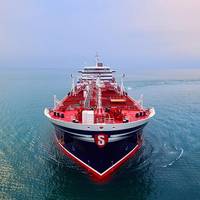
A project assessing the technical feasibility of onboard carbon capture and storage (CCS) has concluded that the technology has the potential to reduce a tanker’s CO2 emissions by as much as 20% per year, with a fuel consumption penalty of just under 10%.The project, Realising Maritime Carbon Capture to Demonstrate the Ability to Lower Emissions (REMARCCABLE), was carried out by the Oil and Gas Climate Initiative (OGCI), the Global Centre for Maritime Decarbonisation (GCMD) and Stena Bulk together with ABS…
In Depth: Outcomes of MEPC 82
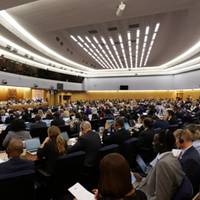
The IMO Marine Environment Protection Committee MEPC 82 met from 30 September to 4 October 2024 and discussed a range of environmental matters, including proposed mid-term measures for the reduction of greenhouse gas (GHG) emissions from ships, enhancing energy efficiency of shipping, tackling marine litter, ballast water management and underwater noise reduction.Tackling climate change - cutting GHG emissions from shipsThe Committee made progress on the development of mid-term…
Interferry Calls for CII Fleet-Balancing Mechanism
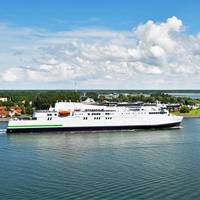
Interferry Director of Regulatory Affairs Johan Roos has announced that the organization has drafted an alternative compliance mechanism to the CII that will be submitted to MEPC 82, to be held September 30 - October 4.CII is a shipping industry-specific operational efficiency requirement that dictates how much fuel is allowed to be burned per nautical mile in relation to ship type and ship size. “It follows the same illogical statistical approach as IMO’s Energy Efficiency Design Index (EEDI) for new ships and the Energy Efficiency Existing Ship Index (EEXI)…
BIMCO Adopts New CII Clause
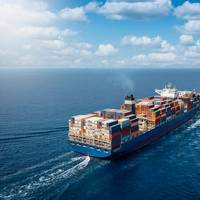
BIMCO has developed a new Carbon Intensity Indicator (CII) Clause for Voyage Charter Parties. The clause was adopted by BIMCO’s Documentary Committee on October 11 and is the latest addition to BIMCO’s portfolio of carbon clauses.“As the shipping industry works towards decarbonization, the need for new contracts and clauses increases. We are working constantly to ensure that BIMCO’s contracts and clauses are fit for purpose as the regulatory landscape changes,” says Nicholas Fell…
ICS Launches CII Data Collection System
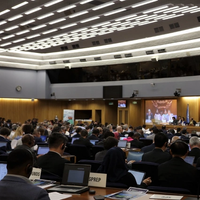
The International Chamber of Shipping (ICS), the global trade association for shipowners which represents over 80% of the world merchant fleet, today launches its Carbon Intensity Indicator (CII) Data Collection System.CII is a rating system developed by the IMO to measure the energy efficiency of ships, above 5,000 gross tonnage and trading internationally, and came into effect on January 1, 2023. It is currently in an experience building phase, with a formal review running in parallel…
AiP for Aurelia's Bulk Carrier "Green Retrofit" Solution
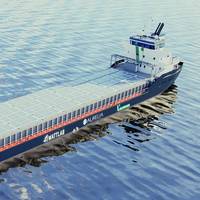
RINA awarded an Approval in Principle (AiP) for a green retrofit package solution designed by Aurelia, in partnership with Econowind, Wattlab and Vertom, aimed to meet CO2 reduction targets in compliance with CII. The retrofit package can be applied to almost any kind of vessel and incorporates rigid sails, solar panels, batteries, optimized weather-routing, and a smart decision support system developed by Hydrographic and Marine Consultants (HMC) to dramatically reduce emissions of an existing Newcastlemax bulk carrier.
BV Grants AiP for Bulk Carrier Carbon Capture Project

Bureau Veritas (BV) has delivered an Approval in Principle (AiP) to Wah Kwong Maritime Transport Holdings, a Hong Kong shipowner, for a carbon capture and storage (CCS) project onboard two of its vessels.Partnering in the project is Qiyao Environmental Technology, a subsidiary of Shanghai Marine Diesel Engine Research Institute.The AiP follows a joint study which validated the technical feasibility of using CCS technology on existing vessels. Wah Kwong provided two vessels from its fleet for the study: a 53…
DNV Launches Real-Time Emissions Data Verification Solution
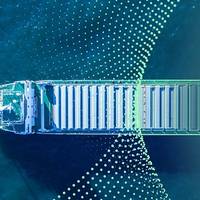
DNV has launched Emissions Connect, an emissions data verification engine and data management platform designed to help the maritime industry accurately assess and work with emissions data.The solution provides a trusted, verified source of emissions data that can be shared securely with all relevant stakeholders along the maritime value chain. High-quality emissions data provided by the shipowner is verified by DNV and shared with customers for self-service in settlement of transactions or other purposes such as compliance reporting…
Name & Shame: Xeneta CEI Tool Highlights Best, Worst Enviro Performers
Xeneta has taken the first step in a campaign to identify the carrier industry’s best and worst environmental performers across the world’s 13 leading shipping trades. With the help of the Carbon Emissions Index (CEI), a tool from Xeneta and Marine Benchmark, carriers have been assessed on the main Far East to South America East Coast container corridor. With first results out, Hamburg Süd is likely celebrating; Evergreen, likely not.According to the latest analysis, the CO2 emitted…
MPC Container Ships Taps zero44 for CO2 Management Tools
Berlin-based zero44 signed a partnership with MPC Container Ships, which will use zero44's digital CO2 management solution for its fleet.Spun off by company builder Flagship Founders in May 2022, zero44 has developed a CO2 management software for commercial vessels. The software focuses on the implications of the CII and the EU ETS regulation.
Marubeni Taps 'Suction Sails' for Bulk Carrier
MMSL PTE. LTD., a wholly owned subsidiary of Marubeni Corporation based in Singapore signed an agreement with bound4blue to install four suction sails on the Crimson Kingdom, making it the first wind-assisted vessel owned by Marubeni. According to the preliminary studies, the 229-m Panamax bulk carrier will be retrofitted in 2023/24 with four 26-m eSAILs, expected to be the largest suction sails ever built and installed on a vessel. After the installation, the vessel will be operated by MaruKlav Management Inc.…
Christiania Shipping inks deal for StormGeo CII Simulator
Denmark's Christiania Shipping, which operates 20 vessels, added StormGeo’s CII Simulator to its fleet performance management toolbox earlier this year. “With the new Carbon Intensity Indicator (CII) rating scheme coming into play soon, we are determined to do our part in decarbonizing the shipping industry,” says Rune Eriksen, Chief Operating Manager at Christiania Shipping. “StormGeo’s CII Simulator not only gives us deep insights into the CII status of our individual vessels but also helps us make well-informed decisions on how we best can deploy our fleet. The system is very user-friendly and is being used across the organization.”With the CII Simulator…
StormGeo Debuts 'Smart Carbon Intensity Indicator' Tool for Ships
StormGeo launched a new Carbon Intensity Indicator (CII) Dashboard that provides ship operators with the ultimate digital tool for calculating, reporting, and proactively improving the CII rankings of their fleet.The new CII Dashboard is a key addition to StormGeo’s software and services suite, s-Suite where it has been integrated into the s-Insight platform.CII RulesThe CII is an operational efficiency indicator that measures how efficiently a ship transports goods or passengers in grams of CO2 emitted per cargo-carrying capacity and nautical mile based on its Annual Efficiency Ratio (AER).
